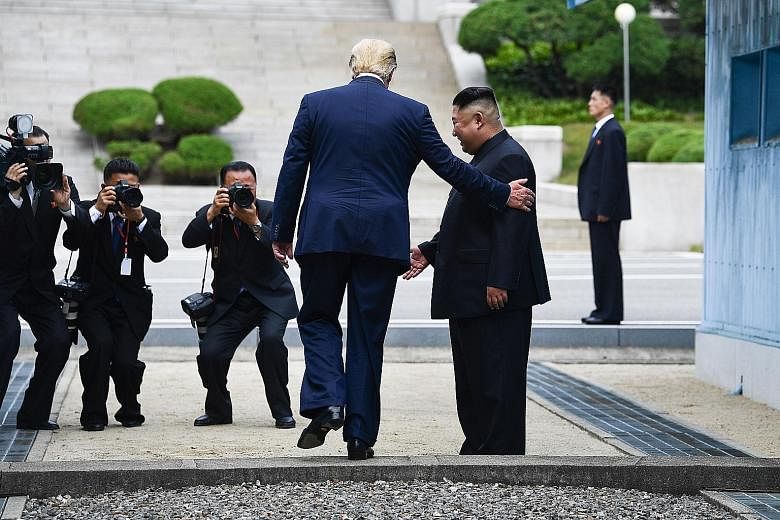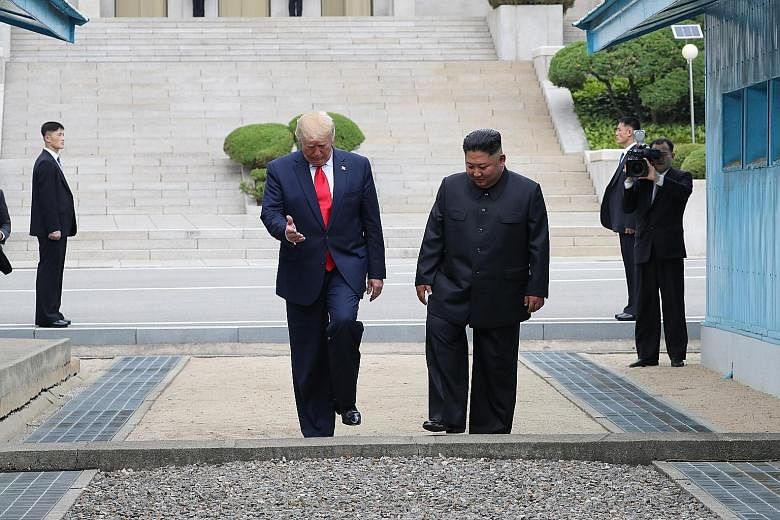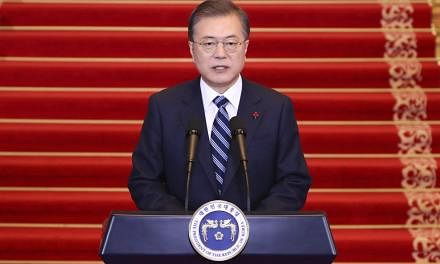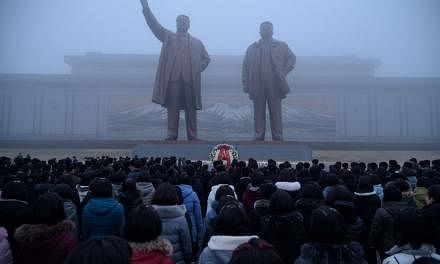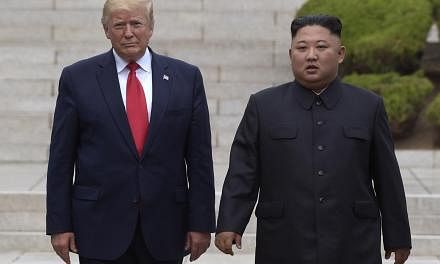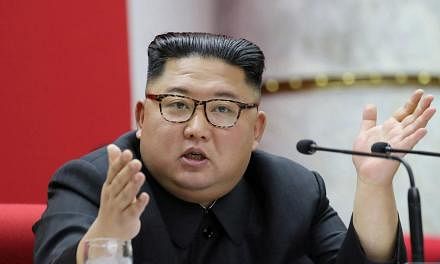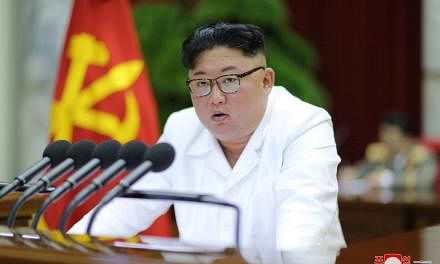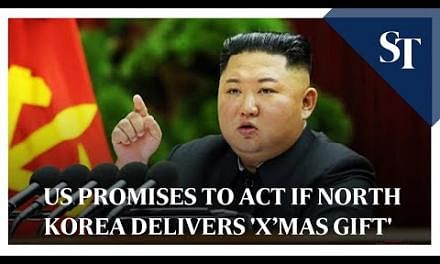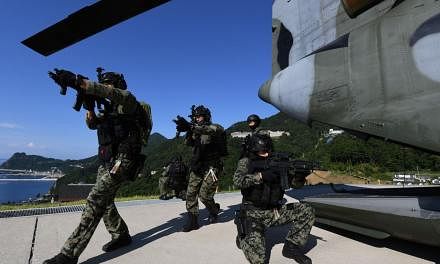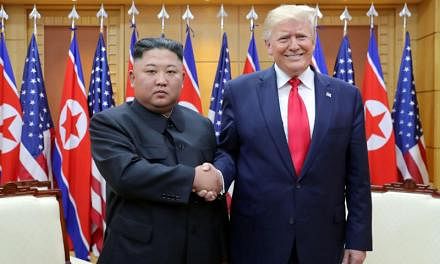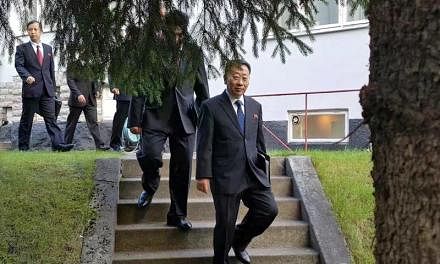WASHINGTON • For decades, United States presidents visiting the Demilitarised Zone (DMZ) dividing the Korean peninsula have followed roughly the same playbook: Peer through binoculars at North Korean border guards. Look stern. Warn Pyongyang that provocations will not be rewarded.
President Donald Trump smashed that precedent yesterday, meeting Mr Kim Jong Un for the third time after a last-minute Twitter invitation that surprised even the North Korean leader.
Yet, throughout the history-making moment, Mr Trump had something on his mind - critics say his overtures to Mr Kim have not led to any meaningful moves towards ending North Korea's nuclear programme.
Nearly every time Mr Trump appeared before cameras, including at the DMZ lookout point, he complained that he had not received sufficient credit for defusing tensions on the Korean peninsula.
He repeatedly lashed out at Mr Barack Obama, at one point saying that the former president had sought meetings with Mr Kim but was rejected - a claim refuted by Mr Obama's deputy national security adviser, Mr Ben Rhodes.
The biggest takeaway from the impromptu DMZ meeting was simply an agreement to restart talks that have gone nowhere since Mr Trump walked out of a February summit with Mr Kim in Hanoi.
That meeting collapsed after Mr Trump refused Mr Kim's demand for sanctions relief in exchange for only dismantling North Korea's main nuclear complex in Yongbyon.
While restarting talks is an accomplishment, one senior administration official said North Korea still has not even articulated what it believes "denuclearisation" would mean. The official said the country's negotiators did not seem to be authorised to discuss nuclear weapons in meetings.
The next round of talks "will go nowhere if North Korea comes back with the same position", said Mr Chun Yung-woo, South Korea's former chief nuclear negotiator with North Korea. North Korea has continued to "relentlessly" build its nuclear arsenal, he said.
"As a whole, it was more of showbiz and optics rather than serious diplomacy," Mr Chun said of the surprise DMZ summit. "I will judge the outcome on the basis of how the meeting translates into North Korea's freeze of fissile material production and reduction in nuclear capabilities."
Mr Trump said that sanctions would remain on North Korea, though he indicated he may ease them at some point in negotiations.
South Korean President Moon Jae-in, who joined part of the talks, sought to propose a way forward in suggesting that Mr Kim could get sanctions relief after he "sincerely, completely" dismantles Yongbyon.
So far, Mr Kim has held out for better terms. He has offered no indication he will relinquish North Korea's nuclear weapons, which the regime views as essential to its survival, and has given the US a year-end deadline to come up with a better offer.
Absent progress towards a deal, Mr Trump's repeated meetings with Mr Kim meanwhile serve to burnish the dictator's reputation.
Analysts say the President risks creating the impression that the US has accepted North Korea's de facto status as a nuclear weapons state. Mr Trump's embrace of Mr Kim has prompted other world leaders to follow suit: Mr Xi Jinping last month promised a "new chapter" in relations while becoming the first Chinese leader in 14 years to visit North Korea.
Mr Kim faces some political pressure of his own. He has come away empty-handed after meeting Mr Trump twice in the hope of winning relief from punishing international sanctions.
"At some point, handshakes will have to lead to actual beneficial outcomes to help justify staying on this path and not reverting back to a more militant policy," said Dr Jenny Town, managing editor of 38 North, a website that provides policy and technical analysis on North Korea.
Mr Mintaro Oba, a former US diplomat who worked on Korean peninsula issues, said that Mr Trump was engaging in "defibrillator diplomacy" that keeps the process alive without "treating the underlying disease".
"It's clear the two sides have not yet budged on any of the key substantive problems, like differences over sanctions relief," Mr Oba said.
"If the working-level negotiators don't have a mandate to address those problems, it's hard to see today's positive atmosphere between leaders translating into any real results."
